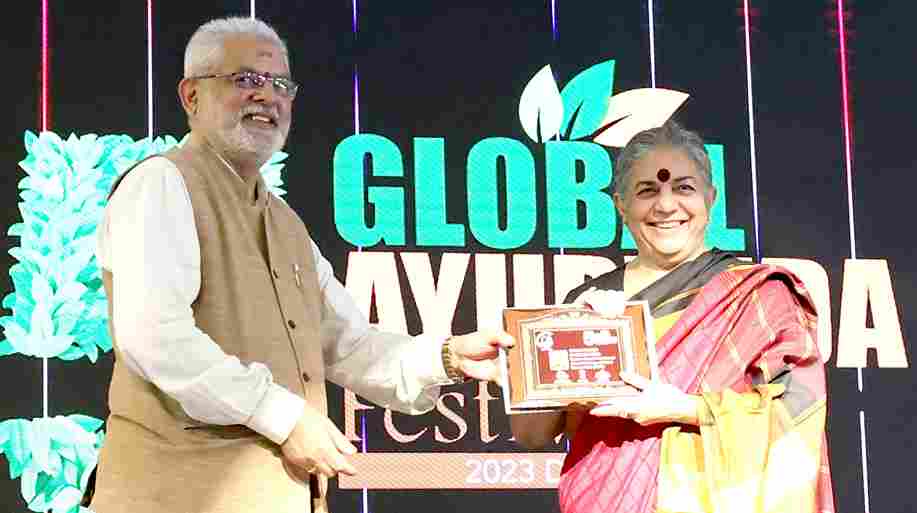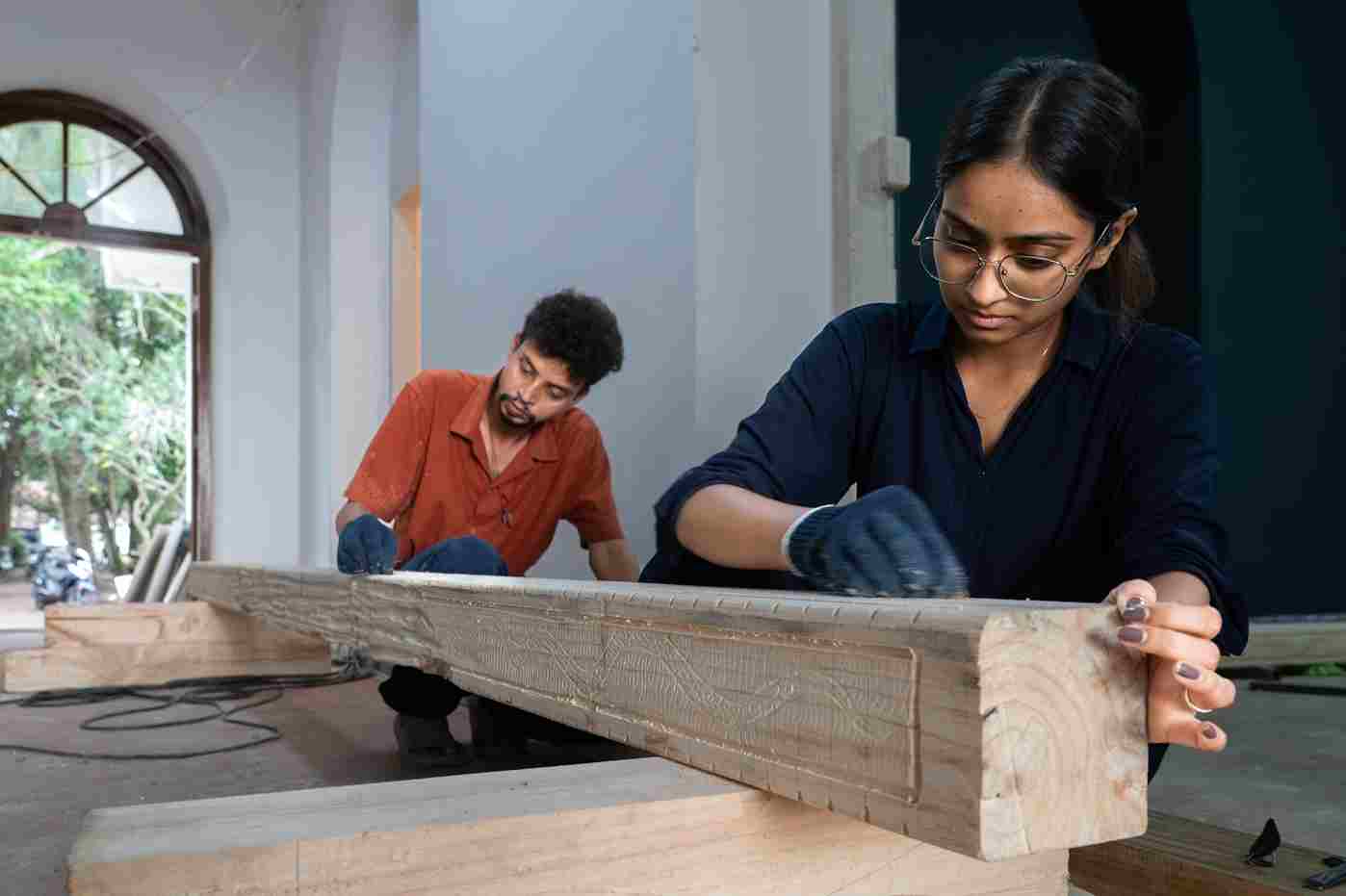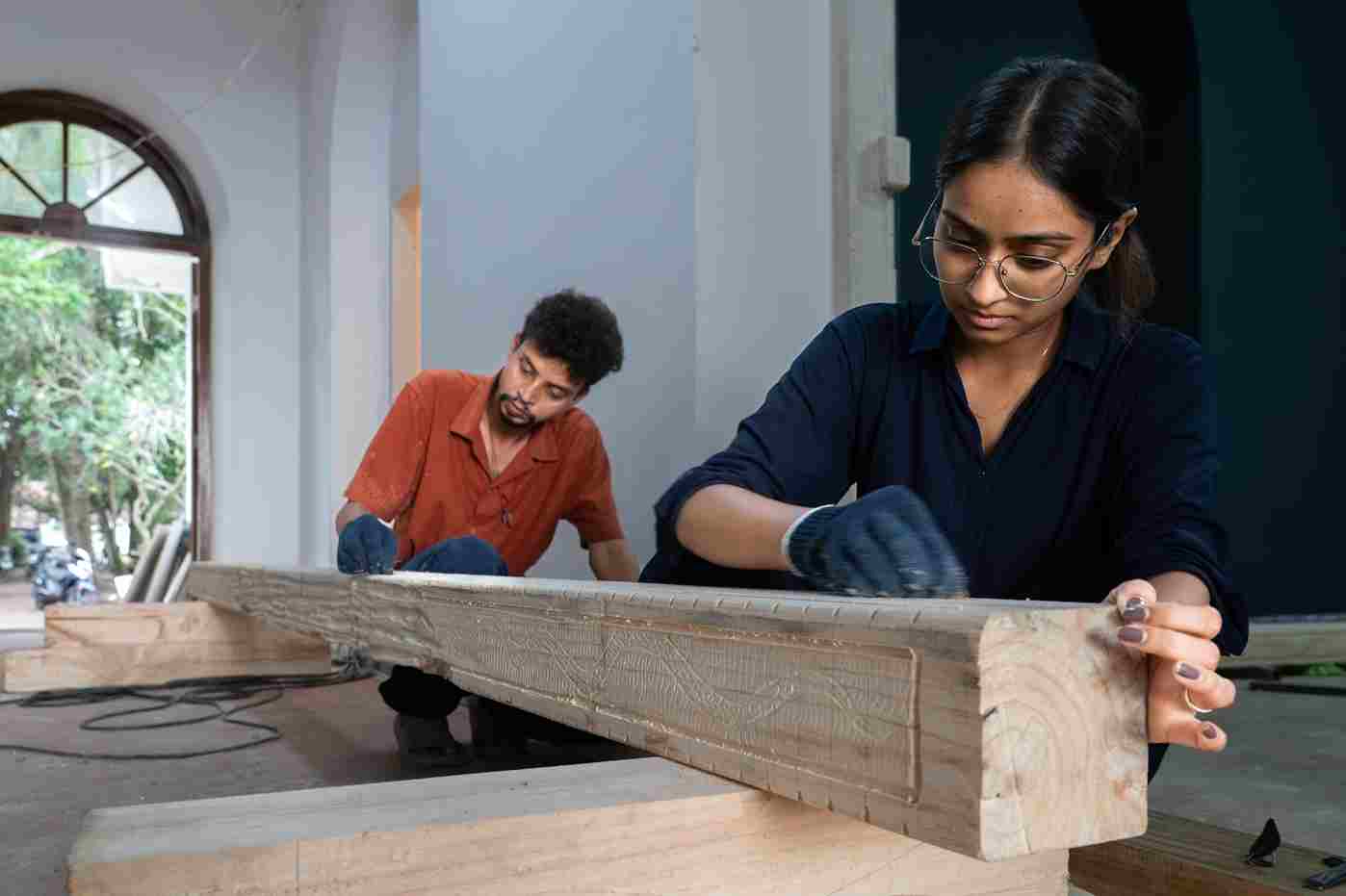Don’t allow Ayurveda to be validated by western science’s parameters: Dr Vandana Shiva
Trivandrum / December 3, 2023
Thiruvananthapuram, Dec. 03: The approach of western science based on mechanistic reduction and separation of parts from the whole is at the core of serious problems faced by the planet ecosystem, which calls for a conscious shift to the holistic approach envisioned by knowledge systems like Ayurveda, environmental activist Dr Vandana Shiva said at Global Ayurveda Festival (GAF) here today.
Speaking at a plenary session on ‘Paryavaran Ayurveda’( Ecology in Ayurveda), Dr Shiva said it is vitally important to resist the temptation to allow validation of Ayurveda by the parameters of the mechanistic reductionism of western science which breaks down the whole into separate part as opposed to looking things at in an interconnected whole.
“For this we must really hold firm. Reduction is passe. Ayurveda is the future,” Dr Shiva asserted.
“Life on planet is a democracy working in harmony. It’s an entire ecosystem. Destruction of nature has a serious health impact. When we destroy diversity we are creating chronic diseases. The western science discovered this only very recently while Ayurveda knew it pretty long back,” she said.
Dr Shiva, known for spearheading campaigns for preserving traditional agricultural practices, said preserving biodiversity is crucial to sustain food production, which is also critical for a healthy life.
Focussing on the “Vriksha Ayurveda”, Dr Ajayan Sadanandan, President CIMH, The Aryavaidya Pharmacy (Coimbatore Ltd), said this branch of knowledge have detailed descriptions on the benefits of planting and nurturing various trees which can significantly reduce atmospheric pollution.
There are complete references in ‘Vriksha Ayurveda’ about trees that help serve different purposes and also how to nurture a garden of beneficial trees and plants within even a small area available, Dr Ajayan said.
Dr Jayan Damodaran, Dean, Faculty of Ayurveda, Kerala University of Health Sciences, said the concept of ‘One Health,’ which links humans, animals and environment, can help address the full spectrum of disease control from prevention to detection, preparedness, response and management and contribute to global health security.
Shri Deep Narayan Pandey, Rtd Chief Conservator of Forests, Rajasthan, said the ideal of refraining from inflicting harm to nature is a philosophy of life ancient India had propounded and the neglect of this cardinal principle is the root cause for grim problems confronting the ecosystem now.
Dr T Sajeev, Chief Scientist and Registrar, Kerala Forest Research Institute (KFRI), emphasised that the Ayurvedic community need to take forward the system in rational way, instead of treating it like a religion.
It is also vital for survival of Ayurveda to downsize production in proportion to availability of raw material, refrain from the temptation to copy the research methods of modern science and getting back to the basics of the knowledge system to ensure that its legacy is not lost for temporary gains.
Introducing the topic at the outset, Dr B R Ramakrishna, Vice-chancellor, Vivekananda Yoga Anusandhan, Bengaluru, said if ecological balance is taken care of most of the diseases, including the recurrence of pandemics, could be prevented. This fundamental idea has been reinforced by classic texts of Ayurveda.
Dr Jayasree, Principal, Pankajakasthuri Ayurveda Medical College, summed up the views that emerged from the session.
The largest ever confluence of Ayurveda stakeholders, the five-day Global Ayurveda Festival began here on December 1.
Photo Gallery



